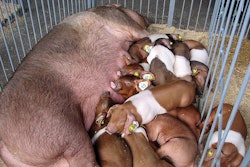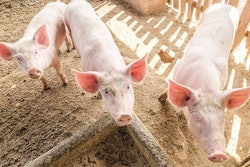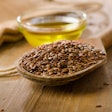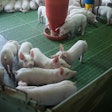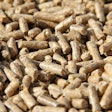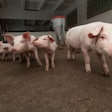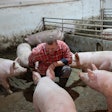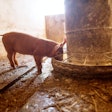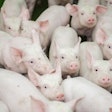Multinational feed additives producer Nutriad, headquartered in Belgium, was a Gold Sponsor of the Pig Feed Quality Conference that was held in Bangkok (Thailand) on April 26 & 27. This year’s conference centered on nutrition of the sow, increasing feed intake in tropical conditions and reducing feed costs. Nutriad’s expertise on swine nutrition and health in general and on feed intake, was at full display during the event.
At critical points during pig production appetite and feed intake are often compromised by a variety of factors such as weaning, diet transition, unpalatable feed ingredients and heat stress. Ab Greven, Commercial Manager Palatability, presented on "Animal Behavior and Feed Intake." Mr. Greven explained Krave AP and Delistart K-Link stimulates feed intake in tropical climates. Sensory learning helps piglets to show less food neophobia an improve feed intake pre- and post weaning. An extra 10% feed intake of piglets in the week after weaning can be realized by applying this innovative concept. Other benefits of the sensory learning are improved sow feed intake, more and heavier piglets at weaning, improved litter uniformity and improved daily weight gain.
BK Chew, Regional Director APAC, added “Climate is the first limiting factor for efficient pig production. We see negative impacts including reduction in feed intake, decrease in sow milk production and increase in embryo mortality. Nutriad understands that feed intake in lactating sows in hot climates is a major challenge to the modern genotypes. Introducing a proven concept like Krave to the sow’s diet becomes a nutritional strategy of choice to stimulate voluntary feed intake in the high temperature conditions we find across Asia.”


